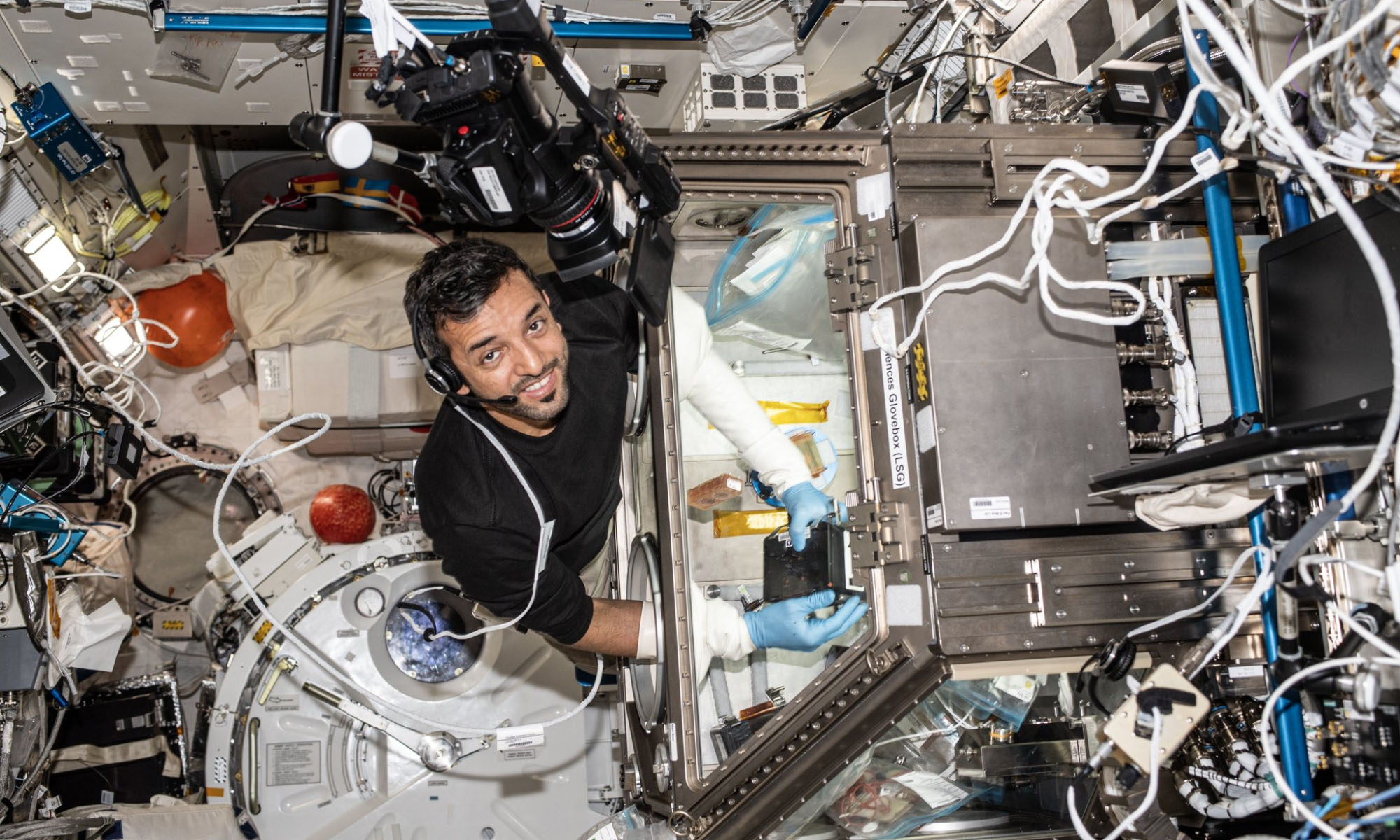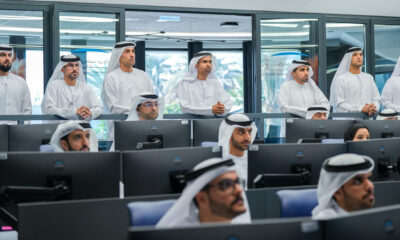News
Emirati Astronaut Conducts 3D-Printing Experiment In Space
The experiment aims to assess the viability of 3D-printed knee cartilage tissue for treating injuries in remote areas on Earth and while in space.

Emirati astronaut Sultan Al Neyadi, and his colleague from NASA, Frank Rubio, are currently conducting experiments on the International Space Station on the viability of 3D-printed knee cartilage tissue.
The 3D printing lab, known as The BioFabrication Facility, has been built to evaluate whether low to zero-gravity conditions can improve printing quality compared to production on Earth, while examining the feasibility of 3D-printed cartilage tissue for fixing injuries in remote conditions, including in space.
Using cutting-edge technology, NASA hopes to eventually alleviate musculoskeletal injuries. “Crew members who experience musculoskeletal injuries on future deep space missions may benefit from the capability to bioprint tissue such as knee cartilage to promote recovery,” the space agency said in a recent press release.
Also Read: Dubai Starts App Development Program To Train 1,000 Emiratis
During the six-month mission, a total of 250 research experiments will be conducted, and Dr. Al Neyadi, who arrived recently onboard the ISS, has already undertaken studies on human heart tissue and served as a test subject for a sleep research program.
News
Rabbit Expands Hyperlocal Delivery Service In Saudi Arabia
The e-commerce startup is aiming to tap into the Kingdom’s underdeveloped e-grocery sector with a tech-first, locally rooted strategy.

Rabbit, an Egyptian-born hyperlocal e-commerce startup, is expanding into the Saudi Arabian market, setting its sights on delivering 20 million items across major cities by 2026.
The company, founded in 2021, is already operational in the Kingdom, with its regional headquarters now open in Riyadh and an established network of strategically located fulfillment centers — commonly known as “dark stores” — across the capital.
The timing is strategic: Saudi Arabia’s online grocery transactions currently sit at 1.3%, notably behind the UAE (5.3%) and the United States (4.8%). With the Kingdom’s food and grocery market estimated at $60 billion, even a modest increase in online adoption could create a multi-billion-dollar opportunity.
Rabbit also sees a clear alignment between its business goals and Saudi Arabia’s Vision 2030, which aims to boost retail sector innovation, support small and medium-sized enterprises, attract foreign investment, and develop a robust digital economy.
The company’s e-commerce model is based on speed and efficiency. Delivery of anything from groceries and snacks to cosmetics and household staples is promised in 20 minutes or less, facilitated by a tightly optimized logistics system — a crucial component in a sector where profit margins and delivery expectations are razor-thin.
Despite the challenges, Rabbit has already found its stride in Egypt. In just over three years, the app has been used by 1.4 million customers to deliver more than 40 million items. Revenue has surged, growing more than eightfold in the past two years alone.
Also Read: Top E-Commerce Websites In The Middle East In 2025
CEO and Co-Founder Ahmad Yousry commented: “We are delighted to announce Rabbit’s expansion into the Kingdom. We pride ourselves on being a hyperlocal company, bringing our bleeding-edge tech and experience to transform the grocery shopping experience for Saudi households, and delivering the best products – especially local favorites, in just 20 minutes”.
The company’s growth strategy avoids the pitfalls of over-reliance on aggressive discounting. Instead, Rabbit leans on operational efficiency, customer retention, and smart scaling. The approach is paying off, having already attracted major investment from the likes of Lorax Capital Partners, Global Ventures, Raed Ventures, and Beltone Venture Capital, alongside earlier investors such as Global Founders Capital, Goodwater Capital, and Hub71.

























